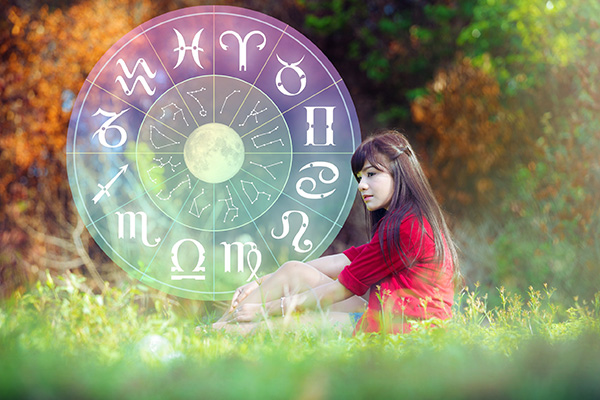Weekly Astrology Forecasts for June 9 — 15, 2025
 The week kicks off positively with a significant cosmic shift encouraging us toward joy, contemplation, and new possibilities. A Sagittarius Moon establishes a hopeful and inquisitive atmosphere today for one of the most transformative weeks of the season. Anticipate emotional waves, intuitive prompts, and cosmic signals for unexpected growth.
The week kicks off positively with a significant cosmic shift encouraging us toward joy, contemplation, and new possibilities. A Sagittarius Moon establishes a hopeful and inquisitive atmosphere today for one of the most transformative weeks of the season. Anticipate emotional waves, intuitive prompts, and cosmic signals for unexpected growth.
The energy today is remarkably strong, providing a captivating mix of spontaneity and stability. All in all, it is an excellent day to tune in, adjust your frequency, and brace yourself for a week brimming with insights.
The morning opens with the Moon in late Scorpio opposing Uranus in Taurus. This opposition may bring emotional surprises or disturbances that urge us to perceive matters differently. Trust what comes to light, regardless of how intense or sudden it may feel.
By midday, the Moon transitions into Sagittarius, boosting our collective spirits and igniting our thirst for truth, adventure, and growth. This lunar shift quickly aligns harmoniously with Saturn in Aries, guiding us to direct our excitement into purposeful actions. It’s a perfect moment to plan a journey, enroll in a class, or reconsider long-term ambitions.
Around midday, Venus in Taurus squares Pluto in Aquarius, stirring deep-seated emotions regarding relationships, values, and control issues. Be conscious of possessiveness or power dynamics, and strive for transparency instead of manipulation. What surfaces now, even if uncomfortable, serves as a gateway to emotional liberation.
Later in the day, the Moon forms a trine with Neptune in Aries, amplifying our creativity and psychic awareness. Inspiration will flow freely, and intuitive messages may provide valuable direction. Trust your inner guidance, and consider participating in spiritual practices like meditation, journaling, or oracle readings.
As the afternoon unfolds, the Moon will create a sextile with Pluto in Aquarius. This creates a chance to channel emotional intensity into transformative intentions that resonate with your higher purpose.
By evening, Mercury in Cancer squares Neptune in Aries. While this aspect may lead to confusion or miscommunications, it also heightens our imaginative abilities and access to the subconscious. Stay mindful of misunderstandings during discussions and refrain from taking things at face value. It’s wiser to indulge in art and poetry rather than contracts or serious conversations.
The Moon continues its journey through Sagittarius tomorrow, encouraging us to maintain curiosity and welcome diverse perspectives. We’re prompted to explore fresh ideas and break free from restrictive beliefs. It’s a day for listening more than speaking, wandering (even mentally), and following the trail of inspiration. Conversations may meander, but they could yield profound insights.
The highlight of the week is the Full Moon in Sagittarius on Wednesday, commonly referred to as the Strawberry Moon. It derives its name from the traditional practices of Native American tribes, especially the Algonquin, who recognized this Full Moon in June as the sign of ripening strawberries and the commencement of the berry-picking season. The name has since gained broader acceptance and signifies the timing of seasonal cycles.
Full Moons are moments of culmination. Under this adventurous lunar energy, we are encouraged to reflect on the truths we’ve discovered since the Sagittarius New Moon six months prior. This one possesses a serendipitous vibe. Don’t be shocked if someone from your past resurfaces or if a new connection feels instantly fated. Encounters today may seem predestined, presenting lessons or opportunities that resonate with long-held dreams. It’s a perfect time for rituals of release and gratitude. Write down what you’re ready to release, then let it go under the moonlight.
The Moon enters Capricorn on Thursday, assisting us in reconnecting with our ambitions and responsibilities. These two days are perfect for practical matters, such as sorting out your finances, completing overdue tasks, or caring for your home. You may feel a strong compulsion to restore order, both internally and externally. Capricorn’s influence reminds us that spiritual growth is achieved through discipline and commitment. Reflect on your goals from the start of the year. What strides have you made? What still requires attention?
The weekend will bring a notable change as the Moon moves into forward-thinking Aquarius. This air sign inspires us to detach from emotional turmoil and view situations from a broader perspective. You might experience sudden shifts in plans or surprise invitations—adapt to the flow and see where the universe is steering you.
Aquarius energy is focused on the future. You may feel inspired to explore something new, whether it’s a different social circle, an unusual spiritual practice, or a technology-based hobby. Keep your heart receptive and your mind adaptable. It will also be a fantastic moment to connect with like-minded individuals or partake in community-oriented activities. Group meditations, sound baths, and metaphysical workshops can feel exceptionally aligned.
* Transit times are for Eastern Time (New York City, NY, USA). Please adjust accordingly if you are in a different time zone.
|
Residing in New Mexico, Susyn provides Psychic Guidance, Astrological Insights, and Channeled Messages that can transform your life! Her credentials are impressive, including a doctorate in metaphysical studies and certifications from The American Association of Professional Psychics and The American Tarot Guild. She is also a published author of two metaphysical books and has penned numerous articles and horoscope columns. Alongside her readings, Susyn acts as a mentoring practitioner, teaching others how to harness their own gifts, elevate their vibrations, and empower themselves. A popular guest on many radio shows, she previously hosted her own. If you seek a genuine shining star with a reading accuracy that will amaze you, look no further. Connect with Susyn at PsychicAccess.com. |
As we step into the second week of June 2025, the cosmos is harmonizing to initiate substantial changes and opportunities in our lives. Let’s explore what the universe has planned for us with the weekly astrology predictions for June 9 — 15, 2025.
Aries (March 21 – April 19): This week, Aries, you may feel a surge of assertiveness and confidence. Harness this energy to face challenges head-on and take charge in both your personal and professional endeavors. Trust your gut and don’t hesitate to take risks.
Taurus (April 20 – May 20): Taurus, this week focuses on communication and relationships. Spend quality time connecting with loved ones and openly sharing your thoughts and feelings. You might also encounter new collaborative opportunities, so keep your mind receptive.
Gemini (May 21 – June 20): Gemini, this week is ideal for self-reflection and introspection. Pause from your busy life and concentrate on your inner thoughts and emotions. This process will provide clarity regarding your goals and aspirations. Listen to your intuition and follow your heart.
Cancer (June 21 – July 22): Cancer, this week you might feel an increase in ambition and drive. Utilize this energy to establish new goals and strive towards achieving them. Embrace new challenges and step outside your comfort zone. Your efforts will be rewarded over time.
Leo (July 23 – August 22): Leo, this week emphasizes creativity and self-expression. Celebrate your artistic side and let your imagination flourish. You may discover new opportunities for creative ventures and collaborations, so take bold steps forward.
Virgo (August 23 – September 22): Virgo, this week calls for healing and self-care. Dedicate time to rest and recharge physically and mentally. Focus on nurturing yourself and cultivating self-love. New insights may also emerge, assisting you in letting go of past grievances and moving forward refreshed.
Libra (September 23 – October 22): Libra, this week prioritizes relationships and partnerships. Take the opportunity to connect with loved ones and strengthen those bonds. There may also be new chances for teamwork and collaboration, so stay open to collective efforts towards common aspirations.
Scorpio (October 23 – November 21): Scorpio, this week heralds transformation and growth. Embrace change and shed anything that no longer benefits you. Trust the journey and recognize that you’re being guided towards a brighter future. Remain receptive to the new opportunities and experiences that arise.
Sagittarius (November 22 – December 21): Sagittarius, this week is characterized by adventure and exploration. Step outside your comfort zone and embrace new experiences. You might find opportunities for travel and learning, so be open to widening your horizons.
Capricorn (December 22 – January 19): Capricorn, this week is all about focus and resolve. Set clear objectives and pursue them with dedication and persistence. Have faith in your abilities and know you possess the strength to navigate any challenges that arise.
Aquarius (January 20 – February 18): Aquarius, this week is dedicated to innovation and creativity. Embrace your unique concepts and allow your imagination to thrive. New chances for self-expression and personal development may present themselves, so don’t shy away from thinking unconventionally.
Pisces (February 19 – March 20): Pisces, this week invites you to engage with your intuition and pursue spiritual growth. Trust your inner wisdom and heed your heart. Connect with your spiritual essence and nourish your soul. New insights and revelations may emerge, offering you peace and clarity in your life.
In summary, this week represents a phase of change and growth across all zodiac signs. Embrace the opportunities that arise and trust the universe to lead you towards a more radiant future. Remain open to new experiences and believe in your own capabilities to overcome any challenges. Happy exploring! Continue reading


















